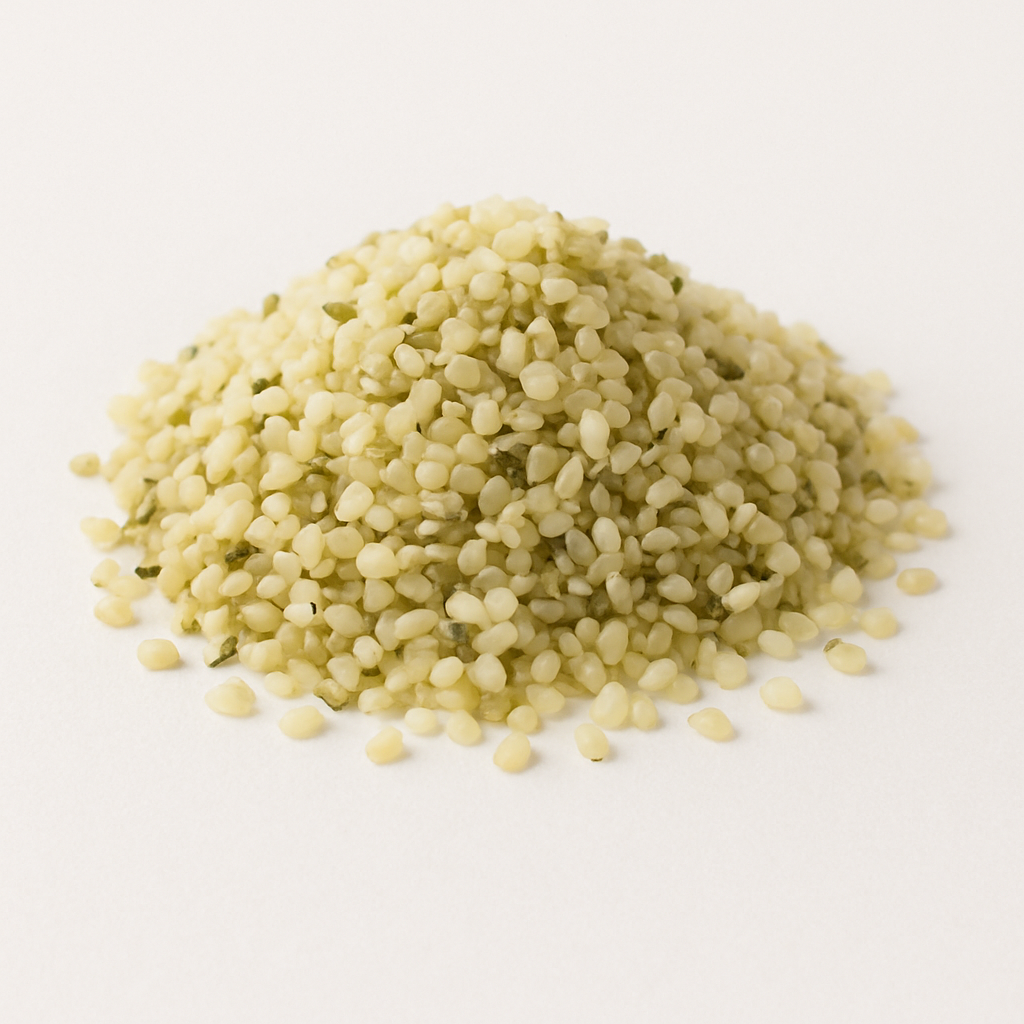Wadi
Hemp seeds
Hemp seeds
Couldn't load pickup availability
Primary Uses:
1. Culinary uses:
- Sprinkled on salads or roasted vegetables
- Added to smoothies or yogurt bowls
- Used as a topping for oatmeal or granola
- Ground into flour for baking
2. Flavoring uses:
- Added to sauces or dressings for a nutty flavor
- Mixed into pesto or hummus for added texture and taste
- Used as a seasoning for roasted meats or vegetables
3. Aroma uses:
- Hemp oil can be used in aromatherapy for its calming properties
- Hemp seeds can be added to potpourri or sachets for a natural scent
Other Uses:
1. Medicinal uses: Hemp seeds are rich in essential fatty acids, which are beneficial for heart health, reducing inflammation, and improving brain function. They are also a good source of protein, fiber, and minerals like magnesium and zinc, which can help support overall health.
2. Religious uses: Hemp seeds have been used in various religious ceremonies and rituals, particularly in Hinduism and Buddhism. In some traditions, they are considered a sacred food that can help purify the body and mind.
3. Ornamental uses: Hemp plants can be grown for their decorative value, as they have a unique and attractive appearance. They can be used in landscaping, as well as in floral arrangements and other decorative purposes.
4. Insect repellent: Hemp oil can be used as a natural insect repellent, as it contains compounds that are toxic to many insects. It can be applied topically to repel mosquitoes, ticks, and other pests.
5. Dyeing agent: Hemp fibers can be used to create natural dyes, which can be used to color fabrics and other materials. The colors produced by hemp dyes are typically earthy and muted, and can range from light beige to dark brown.
6. Folklore uses: Hemp seeds have been used in various folk remedies and traditional medicines for centuries. They have been used to treat a wide range of ailments, including pain, inflammation, and digestive issues.
7. Culinary garnish: Hemp seeds can be used as a garnish or topping for various dishes, adding a nutty flavor and crunchy texture. They can be sprinkled on salads, soups, and other dishes, or used to make hemp milk, butter, and other culinary creations.
Caution:
1. Legal restrictions: Hemp seeds are still illegal in some countries due to their association with marijuana.
2. Allergies: Some people may be allergic to hemp seeds, which can cause allergic reactions such as hives, itching, and difficulty breathing.
3. Digestive issues: Hemp seeds are high in fiber, which can cause digestive issues such as bloating, gas, and diarrhea if consumed in large amounts.
4. Interference with medication: Hemp seeds may interfere with certain medications, such as blood thinners, by affecting their absorption and metabolism.
5. High in calories: Hemp seeds are high in calories, which can lead to weight gain if consumed in excess.
6. Expensive: Hemp seeds can be expensive compared to other types of seeds and nuts.
7. Limited availability: Hemp seeds may not be readily available in all areas, making them difficult to obtain.
8. Short shelf life: Hemp seeds have a relatively short shelf life and can go rancid quickly if not stored properly.
9. Taste: Some people may not enjoy the taste of hemp seeds, which can be nutty and slightly bitter.
10. Processing issues: The processing of hemp seeds can be difficult and time-consuming, which can increase the cost and reduce the availability of the product.
Share


